Ditapis dengan
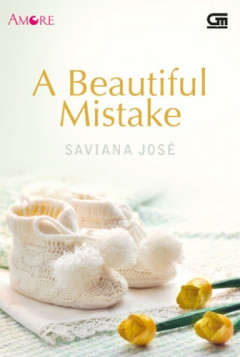
E-Book A Beautiful Mistake
Seorang laki-laki harus berani bertanggung jawab atas apa yang dilakukannya, Ricky tahu itu. Meskipun taruhannya adalah diusir dari rumahnya nan mewah, Ricky harus berani menerima konsekuensinya. Dia tidak mau meninggalkan Lasya dalam keadaan mengandung. Sementara Lasya sendiri dihadapkan pada kebingungan. Harus memilih antara Ricky dan Yuda, laki-laki yang amat mencintainya dan bersedia mener…
- Edisi
- Cet. 1
- ISBN/ISSN
- 9786020321561
- Deskripsi Fisik
- 232 hlm; 1,2 mb
- Judul Seri
- -
- No. Panggil
- 899.2213 SAV a
E-book Fundamental Approaches to Software Engineering
Many important theoretical and practical advances have taken place in the areaof Formal Methods (FMs), and impressive applications have been developed.Furthermore, FMs and their associated tools are now routinely used in manyindustries. However, their full potential remains partly unexploited. In pg. 57 ofa recent FMs survey [47], I gave my own view about their future in a positionstatement whe…
- Edisi
- -
- ISBN/ISSN
- 9783031909009
- Deskripsi Fisik
- 303 hlm
- Judul Seri
- -
- No. Panggil
- 005.1 MES f
Kitab Suci untuk Anak-anak
Kitab suci untuk anak-anak ini dipersembahkan bagi segenap keluarga Kristiani yang diharapkan dapat menjadi sarana untuk mendorong anak-anak semakin mengenal, mencintai, dan meneladani Yesus Kristus yang adalah Jalan, Kebenaran, dan Hidup.
- Edisi
- -
- ISBN/ISSN
- 9794979384
- Deskripsi Fisik
- illust + 399 hlm;
- Judul Seri
- -
- No. Panggil
- 220 GRA k
E-book Post Cinema : Cinema in the Post-art Era
For some time now, in newspapers and books, a series of words keep ap-pearing that begin with the pref ix “post-.” As for these new words, the key to understanding seems to be a semantics of ambiguity. Post does not indicate something absolutely different but something in-between: postcapital-ism would be a new phase of capitalism; postmodernism, a new f igure of modernism; and post-history…
- Edisi
- -
- ISBN/ISSN
- 9789463727235
- Deskripsi Fisik
- 367 hlm
- Judul Seri
- -
- No. Panggil
- 778.53 CHA p
E-book A Horizon of (Im)possibilities : A Chronicle of Brazil’s Conservativ…
The 2018 presidential election result in Brazil surprised many. Since then, numerous debates and a growing body of texts have attempted to understand this result and unearth the seeds that sowed what was understood by different analysts as the country’s ‘conservative turn’. In this introduction, we will not elaborate on all the factors that const…
- Edisi
- -
- ISBN/ISSN
- 9781908857927
- Deskripsi Fisik
- 257 hlm
- Judul Seri
- -
- No. Panggil
- 304.681 ARR a
E-book A Holter for Parkinson’s Disease Motor Symptoms : STAT-On
Parkinson’s disease (PD) is the second most frequent neurodegenerative disorder, with approximately 6.1 million people who live with PD in 2016 worldwide [1]. For several reasons that are not yet fully understood, the prevalence and incidence are expected to increase in the next years. According to the World Health Organization, globally, disability and death due to PD …
- Edisi
- -
- ISBN/ISSN
- 9781032632865
- Deskripsi Fisik
- 269 hlm
- Judul Seri
- -
- No. Panggil
- 610 AVI a
E-book Best Practice Guide for Positive Parenting
Our conception of what parenting should look like has changed considerably in our society. This is due not only to the large variety of family structures and the diversity of cultures that currently co-exist in our society, but also to a shift in mindset that touches the very heart of the parenting task. This can be expressed as the need to replace the concept of parental authority, which focu…
- Edisi
- -
- ISBN/ISSN
- -
- Deskripsi Fisik
- 80 hlm
- Judul Seri
- -
- No. Panggil
- 649.1 OCH b
E-book A Guide to Risk Management of Cultural Heritage
Heritage managers and caretakers often have to prioritize and make choices about how best to use the available resources to protect collections, buildings, monuments and sites. This means, for instance, having to decide among options such as increasing security against theft and vandalism, improving building maintenance to reduce water leaks, installing air conditioning in collection storage ar…
- Edisi
- -
- ISBN/ISSN
- -
- Deskripsi Fisik
- 118 hlm
- Judul Seri
- -
- No. Panggil
- 613.6 JUN a
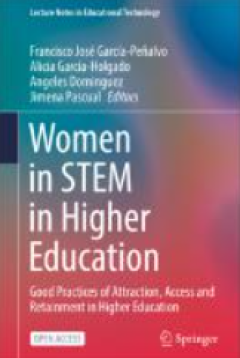
E-book Women in STEM in Higher Education : Good Practices of Attraction, Acce…
Women present a historic and worrying gap in science and technology-related disciplines, generally knowns as STEM (Science, Technology, Engineering,and Mathematics), except in the case of health professions. A holistic approach isneeded to support policymakers worldwide in bridging the gender gap in STEM, inwhich higher education institutions have a crucial role. Promoting this active impli-cat…
- Edisi
- -
- ISBN/ISSN
- 9789811915529
- Deskripsi Fisik
- 204 hlm
- Judul Seri
- -
- No. Panggil
- 607.1 GAR w

E-book Contemporary Challenges in Securing Human Rights
Since 1948, the study of human rights has been dominated by legal scholarship that has sought to investigate the development of human rights law, emerging jurisprudence, regional systems, the decisions and recommendations of human rights mechanisms and institutions and to a lesser extent the ‘compliance gaps’ between state commitments and actions. Even so, in all of these spheres there are …
- Edisi
- -
- ISBN/ISSN
- 9780993110221
- Deskripsi Fisik
- 166 hlm
- Judul Seri
- -
- No. Panggil
- 341.48 LEN c
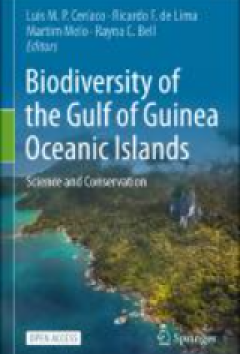
E-book Biodiversity of the Gulf of Guinea Oceanic Islands : Science and Conse…
The Portuguese explorer Francisco Newton was one of thefirst naturalists todedicate almost one decade to the study of the outstanding diversity of the Gulf ofGuinea oceanic islands. The collections he made, in what was largely unexploredterritory for science, allowed the description of dozens of new species and began toreveal intriguing biogeographic patterns. Gazing at the species he was colle…
- Edisi
- -
- ISBN/ISSN
- 9783031061530
- Deskripsi Fisik
- 707 hlm
- Judul Seri
- -
- No. Panggil
- 577 ALM b
E-book Moral Ecology of a Forest : The Nature Industry and Maya Post-Conserva…
For the Maya, the landscape in which they live, the k’aax (forest), has a moral ecology. It is the place where they feel “at home in the world,” where they are situated in an everyday engagement with their environment. It is also where their history, identity, spiritual beliefs, communion with other species, and ulti-mately their survival are rooted. The ethnic boundary that t…
- Edisi
- -
- ISBN/ISSN
- 9780816543465
- Deskripsi Fisik
- 214 hlm
- Judul Seri
- -
- No. Panggil
- 304.2 MAR m
E-book Altering Crop Management Practices to Promote Pollinators
Agricultural intensification, or the increase in crop production per unit land area, has resulted in high-input, large-scale monoculture cropping and overall declines in crop diversity in the USA (Aguilar et al., 2015) and greater homogeneity in the crops grown across regions at a global scale (Martin et al., 2019). This has often resulted …
- Edisi
- -
- ISBN/ISSN
- 9781801465700
- Deskripsi Fisik
- 23 hlm
- Judul Seri
- -
- No. Panggil
- 638.1 FRA a
E-book Comics of the New Europe : Reflections and Intersections
Despite claiming to offer surveys of “world comics,” global histories of graphic narrative replicate some of the aporias present in the relatively impossible category of “world” or “global” literature.2 Even more narrowly defined surveys of European comics focus primarily on the “Franco-Belgian” tradition, thus swiftly setting aside …
- Edisi
- -
- ISBN/ISSN
- 9789461665270
- Deskripsi Fisik
- 291 hlm
- Judul Seri
- -
- No. Panggil
- 741.5 ALA c
E-book The Roadmap to a Low-Carbon Urban Water Utility : An international gui…
he transition to low-carbon urban water utilities is an innovative idea, only currently embraced by a few forward-thinking utilities. This roadmap is directed at urban water utility managers in charge of planning future actions, as well as at the stakeholders who will support the utility action plans. Because only a few ‘early adopter’ utilities have embarked on a low-carbon transition, thi…
- Edisi
- -
- ISBN/ISSN
- 9781780409924
- Deskripsi Fisik
- 51 hlm
- Judul Seri
- -
- No. Panggil
- 628.1 BAL t
E-book The State of Food Security and Nutrition in the World 2022
The 2020 edition of this report included, for the first time, global estimates of the cost and affordability of a healthy diet. These are useful indicators of people’s economic access to nutritious foods and healthy diets. The effects of inflation in consumer food prices stemming from the economic impacts of the COVID-19 pandemic and the measures put in place to contain it, are clear and sign…
- Edisi
- -
- ISBN/ISSN
- 9789251364994
- Deskripsi Fisik
- 260 hlm
- Judul Seri
- -
- No. Panggil
- 613.2 HOL t

E-book Experiencing and Envisioning Food
Experiencing and Envisioning Food: Designing for Change contains papers on gastronomy, food design, sustainability, and social practices research as presented at the 3rd International Food Design and Food Studies Conference (EFOOD 2022, Lisbon, Portugal, 28-30 April 2022). The contributions explore potential solutions to current problems in the food system, and outline scenarios on the future o…
- Edisi
- -
- ISBN/ISSN
- 9781032479897
- Deskripsi Fisik
- 263 halaman
- Judul Seri
- -
- No. Panggil
- 664 BON e
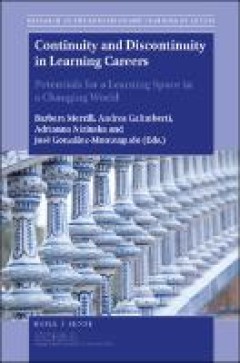
E-Book Continuity and Discontinuity in Learning Careers: Potentials for a Lea…
Continuity and Discontinuity in Learning Careers: Potentials for a Learning Space in a Changing World focuses on the continuities and discontinuities of the learning careers and identities of non-traditional adult students in diverse learning contexts. Readership: All those interested in adult education and the challenges facing adult education today such as researchers in education and social …
- Edisi
- -
- ISBN/ISSN
- 9789004375475
- Deskripsi Fisik
- 214 halaman
- Judul Seri
- -
- No. Panggil
- 374 MER c
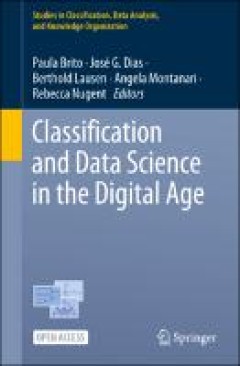
E-Book Classification and Data Science in the Digital Age
The contributions gathered in this open access book focus on modern methods for data science and classification and present a series of real-world applications. Numerous research topics are covered, ranging from statistical inference and modeling to clustering and dimension reduction, from functional data analysis to time series analysis, and network analysis. The applications reflect new analy…
- Edisi
- -
- ISBN/ISSN
- 9783031090349
- Deskripsi Fisik
- 416 halaman
- Judul Seri
- -
- No. Panggil
- 004 BRI c
E-book Desain Sistem Pemilu : Buku Panduan Baru International IDEA
Pilihan atas sistem pemilu adalah salah satu keputusan kelembagaan paling penting bagi demokrasi di mana pun. Dalam hampir semua kasus pilihan atas sistem pemilu tertentu memiliki pengaruh mendalam bagi masa depan kehidupan politik di negara bersangkutan, dan sistem politik, begitu sudah dipilih, sering kali tetap sangat konstan seiring berbagai kepentingan politik mengukuhkan diri di seputar d…
- Edisi
- -
- ISBN/ISSN
- 9786027324855
- Deskripsi Fisik
- 233 hlm
- Judul Seri
- -
- No. Panggil
- 324.6 REY d
E-book Trade and Employment : From Myths to Facts
Those numbers, however, do not indicate that interviewees have an entirely negative perception of globalization. Indeed, evidence based on surveys that make a distinction between growth and employment impacts of globalization reveals that a majority of respondents in industrialized countries believes in the positive growth effects of globalization that are so often emphasized in the public deba…
- Edisi
- -
- ISBN/ISSN
- 9789221253211
- Deskripsi Fisik
- 318 hlm
- Judul Seri
- -
- No. Panggil
- 381 JAN t
 Karya Umum
Karya Umum  Filsafat
Filsafat  Agama
Agama  Ilmu-ilmu Sosial
Ilmu-ilmu Sosial  Bahasa
Bahasa  Ilmu-ilmu Murni
Ilmu-ilmu Murni  Ilmu-ilmu Terapan
Ilmu-ilmu Terapan  Kesenian, Hiburan, dan Olahraga
Kesenian, Hiburan, dan Olahraga  Kesusastraan
Kesusastraan  Geografi dan Sejarah
Geografi dan Sejarah